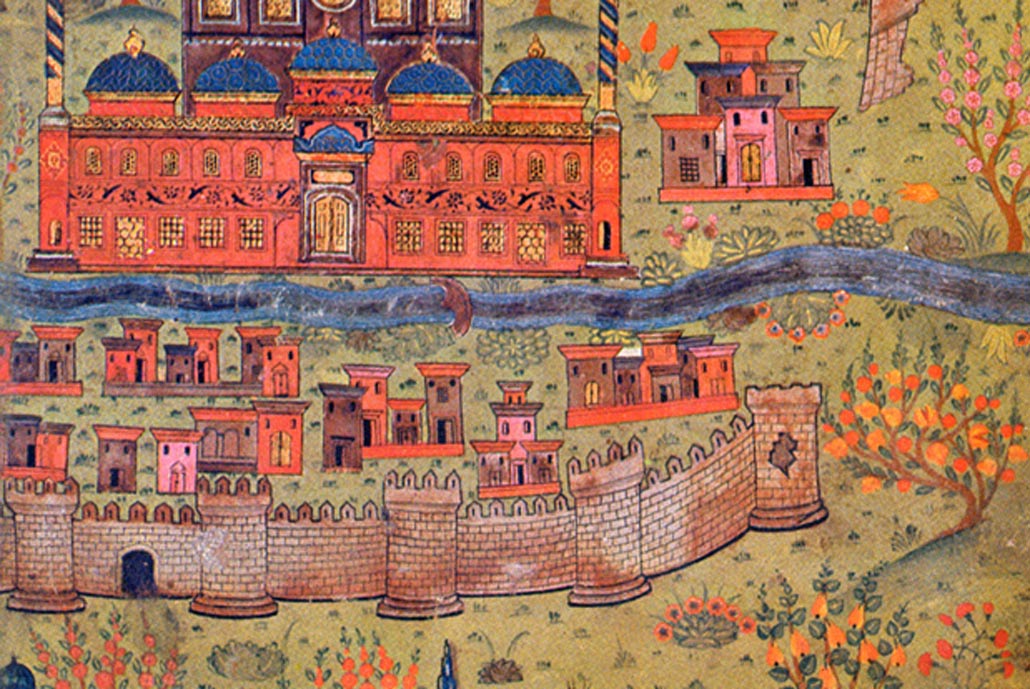
he is sometimes described as the first archaeologist. Nabonidus put his son in charge and left to go scratch his antiquarian itch. It's like that, only now everyone speaks Akkadian and they have scrolls. Imagine waking up tomorrow, and everyone is going to work in a toga while reading the news on their phones in Latin, because the governments everywhere completely failed, and the only ones together enough to keep everything going were no-kidding Romans who hid out in the Amazon somewhere. He was the second-to-last emperor of the Neo-Babylonian Chaldean empire, which was oddball in and of itself. This is eerie, as it puts Nabonidus' oddball reign into perspective. posted by filthy light thief (14 comments total) If you want more rabbit-holes of theories and myths, some think that Atlantis is in the Sahara (thinking that the Richat Structure in Mauritania was made by people), or perhaps in southern Algeria, which further complicates internet searches for "Atlantis of the Sands" in modern times.

When he "began researching the lost city in the library stacks at the University of California at Los Angeles, and began to wonder whether Ubar might be the city identified as Omanum Emporium on a map of Arabia drawn by the Alexandrian geographer Claudius Ptolemy ( World Digital Library, zoom-able map) in the second century A.D." ( New York Times book review, 1998). Y Magazine, "the pulse of Oman" visited Shisr, and noted "archaeologists remain divided on whether it is indeed the ‘Atlantis of the Sands.’ Many have changed their opinion and now claim that Habarut ( Google maps, unclear if this is the right location), across the border in Yemen, could be the site of Ubar." Clapp himself had other theories. Perhaps Ubar is in Rub' al-Khali, "The Empty Quarter" (which you can now visit relatively safely, per Trip Advisor reviews). This looks more a trading outpost than a rich center of commerce. At that time, the focus was on Shisur (Shisr or Shis'r), the modern name of a location in southern Arabia.īut as noted on, if Shis'r is the mythical Ubar, "then the legends certainly made it much greater than it actually was." From modern archaeological findings, Shis'r was a small place, with a few huts, some defensive towers, and a well in the center, with "about 150 people would have lived within the fortress walls," as recounted on Nova. Clapp participated in a PBS Nova episode titled "Lost City of Arabia" (transcript more from PBS circa 1996), which first aired in 1996. Timeline from The road to Ubar : finding the Atlantis of the sands by Nicholas Clapp, published in 1999 (available to borrow from ). 1991-92, when Ubar (Iram) was claimed as re-discovered (archived Web 1.0 website, including some notes on expeditions through 2001).1956 - (not discussed in Clapp's book, as far as I could see).Lawrence (aka Lawrence of Arabia) was reportedly contemplating a search for Ubar, in the days before his death in a motorcycle accident in 1935") 1953 - Wendell Phillips, an American adventurer, sought the lost city (NYT book review, which notes that "even T.E.

officer Raymond O'shea, who wrote of his time and experiences in Sand Kings Of Oman, who came across a "lost city" in the sands (Google books previews x2) 1945(a) - Wilfred Thesiger (Wiki), who discovered a deep connection with his Bedouin companions and a passion for the challenges of desert travel (Pitt Rivers Museum, Journey biographies) to the point that while starving on sand dunes in 1946, he turned aside hallucinations of cars and lorries that could carry him to safety (Guardian, 2003 obituary).1932 - Harry St John Philby (Wiki), who instead discovered the Wabar craters (Aramco World archive).

In Thomas's footsteps, expeditions sought the city in:

In 1930, Bertram Thomas discovered "the road to Ubar," as he wrote in Arabia Felix, a travel story named after the Latin name for a portion of the Arabian peninsula. Part of the complication of looking for Ubar comes from related and equally vague histories and tales, such as Iram of the Pillars (Wiki), which is a lost city, region or tribe mentioned in the Qur'an (Islamicity). Frankincense is still harvested in this region, though what may have been the hub of a major frankincense trading network is now gone. The Story of Frankincense (Middle East Institute) doesn't includ Ubar, but includes a lot of historical background for this valued commodity.


 0 kommentar(er)
0 kommentar(er)
